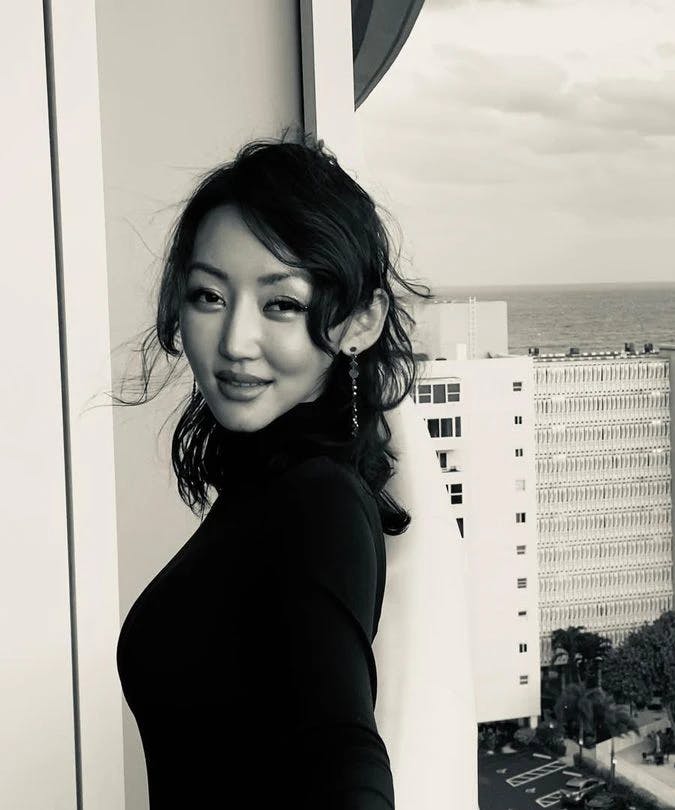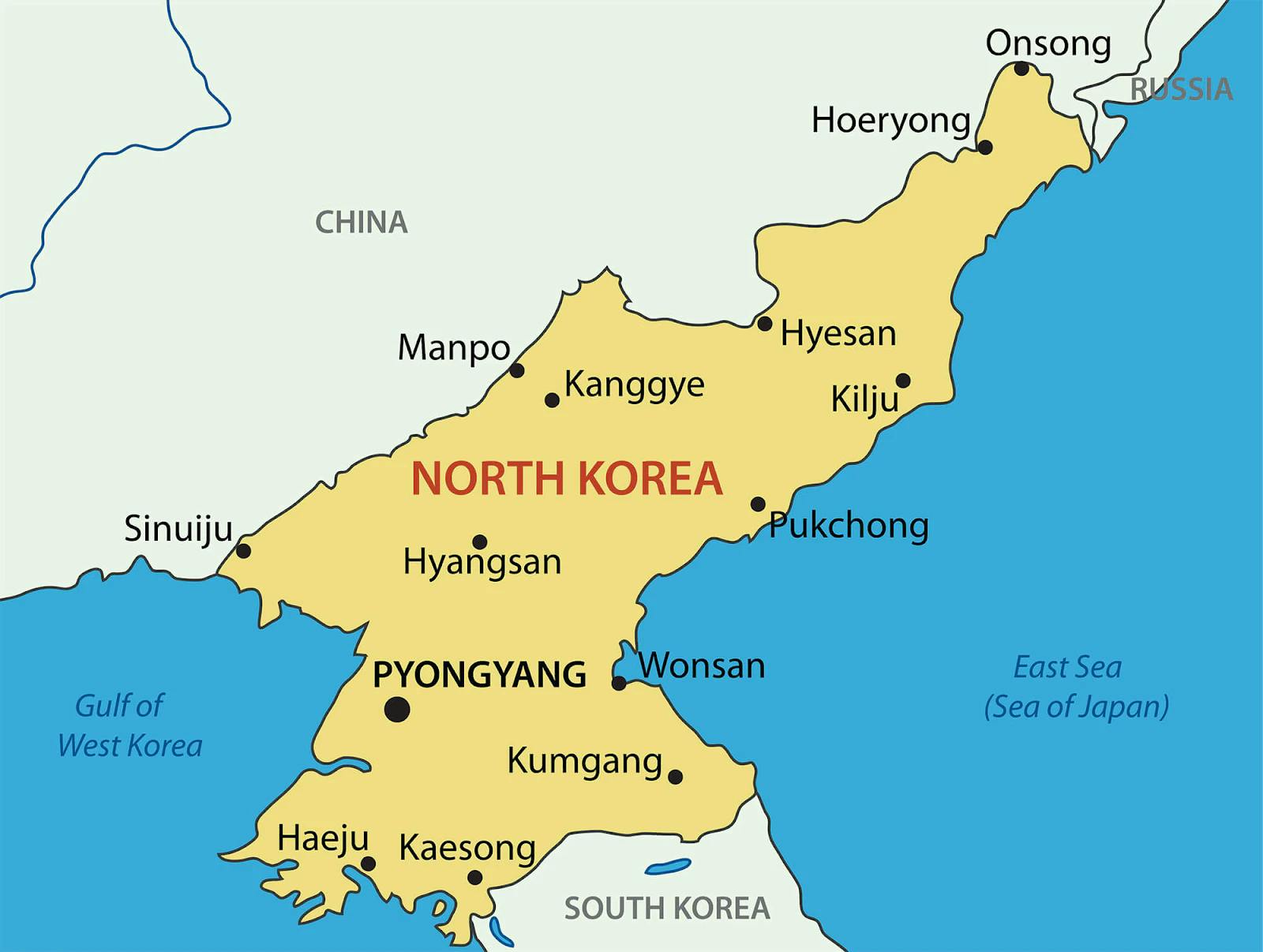What North Korean Refugee Yeonmi Park Wants Americans To Know About Communism
With seemingly increasing support for Communism from American youths, it’s important now more than ever that we look to those who have gone through hell to escape it.

North Korean defector Yeonmi Park, 27, has told her story and shared insights about North Korea on her YouTube channel, Voice of North Korea by Yeonmi Park, and has recently been featured on several podcasts, including The Jordan Peterson Podcast and Timcast IRL. In these interviews she talks about what life was like for her, what drove her to leave North Korea, the atrocities she endured to get to the United States, and her journey of gaining, and accepting, freedom.
Growing Up in North Korea
After the collapse of the Soviet Union, North Korea’s economy stopped receiving the support of Russian Communists. With no outside support, the nation began to isolate itself from the rest of the world – Park has referred to North Korea as more like a different planet, rather than a different country on Earth. The government began rationing its resources among its people unequally – on the basis of a class system – despite calling itself a “socialist paradise.”
How much rice an individual could eat that day was determined on the basis of their class designation – which was also determined by the government. North Korean citizens were divided into three class categories, and within those categories were 50 subcategories of classes. From the class you were born in, you can never go up, only down; if you marry someone and they’re a lower class than you, you go down to their level, instead of them going up with you. What class you’re in also largely depends on things out of your control – so if your ancestor was a landowner, or they didn’t fight for Communism, then you’re doomed to live in a lower class forever.

Park was born in Hyesan, a city in the northern region of North Korea, where many North Koreans died during the Great Famine in the 1990s. United States Agency for International Development (USAID) administrator Andrew S. Natsios and author of The Great North Korean Famine argued that this famine was largely government-manufactured. In 1995, the regime blocked food shipments to the Northeast region of the country, starving everyone in the region so that civilians in Pyongyang, the capital of North Korea, could receive enough food, and in turn, provide their support for the government. Natsios said that, for two and a half years, “no food deliveries were made to that region.”
Park and her sister would catch dragonflies and grasshoppers and roast them with a lighter. This was their primary source of protein growing up. They would play a game talking about how much they could eat in gigantic proportions because they had no concept of how much they could eat or what being full felt like. Rice was a luxury that had to be portioned out throughout the day. Park recalls the constant hunger – how it prevents you from thinking about anything else.
Park and her sister would catch dragonflies and grasshoppers and roast them with a lighter.
Park draws comparisons between North Korea and the Hunger Games trilogy. In the story, the nation of Panem is divided into thirteen districts, and the Capitol. Citizens living in the Capitol are well fed, to the point of excess. Meanwhile, in remaining districts, citizens live in varying degrees of poverty, where some die of starvation.
When you can’t guarantee your next meal, or ensure survival for yourself or your family, it’s not conducive to an environment that allows you to take time to think about the meaning of life, or what freedom is. And that’s reality for those in North Korea, save for those in Pyongyang, where they’re fed and maintained so that they can continue to support the regime. If this continues through generations, there’s no environment for rebels to thrive.
It was in this environment that Park was born. She regularly saw dead bodies on the street, set out to be collected like garbage. For her, it was as normal as it is for us to see garbage trucks picking up bags or bins from the street curbs.
As she grew older, Park, along with other North Korean children, missed out on learning about love. For her, there was love for their “great leader,” but no concept of love for family, or for other people, in the way we recognize that in the West. Park had never heard her mother tell her she loved her.
Park had never seen a map of the world.
Along with not being taught about love, Park had no concept of human rights or freedom. In North Korea, their calendar begins with the birth of Kim Il-Sung (whom they see in the same way as Christians see God, and who gave his son Kim Jong-Un because he loved his people), and they don’t see themselves as Asians, but rather of the “Kim Il-Sung race.” The nation is so isolated, and information is so controlled, that its people don’t know that other people live in freedom. In fact, Park had never seen a map of the world, and she only had a negative concept of Americans, where in North Korea they’re referred to as “American Bastards.”
The language is also controlled, so as to control their thoughts. Words like “stress” and “oppression” don’t exist. If you don’t know the meaning of oppression, you can never realize that you’re oppressed.
One day Park was so hungry, she began to wonder if the lights in the distance that she saw from her border town could have food. Without knowing anything about the world beyond North Korea, nor freedom, she decided to escape.
Escaping North Korea
When Park was 13 years old, she and her mother met with a woman who would guide them to China. They were told to not say they were mother and daughter, and they told Park to say she was 18 instead of 13, and her mother was told to say she was 35 instead of in her 40s. What Park didn’t know was that this was for trafficking purposes.
They crossed the Yalu River between North Korea and China. In spite of guards being there, they passed without being shot at, since the traffickers were able to get away with bribing them. Upon crossing, Park was nearly raped by a Chinese guard, but her mother offered herself instead. Park had no concept of sex at this point and didn’t understand what was happening to her mother – only that it was horrible and she didn’t want to watch. This was just the beginning of the sexual abuse she would endure in China.
Upon crossing, Park was nearly raped by a Chinese guard, but her mother offered herself instead.
Some in the West would say being a victim of sexual trafficking seems worse than hunger – after all, it strips you of your autonomy, and your ability to say “no” and have it be respected. You’re nothing but an object resembling a human being. However, Park believes hunger is worse. Their traffickers told them if they didn’t want to be sold, they could simply go back to North Korea – which was nothing if not certain death. With that, Park and her mother were separated, but remained in China, with her mother being sold for less than $100 USD, and herself sold for just under $300 USD (Park was sold for a higher price because of her virginity).
For almost two years, Park endured the trafficking and ultimately came to want to kill herself. Her trafficker came to an agreement with her; if she became his mistress, he would help her find her family. Park agreed, and she was reunited with both her mother and her father, who would eventually pass away from untreated colon cancer that he got during the time he was in an internment camp in North Korea.
She crossed the Gobi Desert in February, where if you stopped moving, you froze to death.
Shortly after, she crossed the Gobi Desert in Mongolia with Christian missionaries. She made the crossing in February, in -40 degree weather, where if you stopped moving, you froze to death. She would reach a detention center where she’d ultimately be sent to South Korea, and be granted her freedom.
The Price of Freedom
For Park, freedom was scary and painful. It was the complete opposite of everything she grew up knowing. It marked the beginning of being asked about herself, about Yeonmi Park. Those memes where they replace “I” with “we” are seemingly based in some actual truth; you don’t ask what someone’s favorite color is, because everyone’s is red, the revolutionary color.
In a Communist, socialist utopia, there’s no individuality. When you grow up being a part of a collective and a government that dictates your entire life for the sake of equality, it’s disorienting to suddenly be granted nearly full autonomy over yourself. Park even called it painful, needing to think for yourself, about everything.
It was disorienting and “painful” to suddenly be granted nearly full autonomy over yourself.
However, she adapted and overcame that pain. Freedom became a responsibility, not a privilege or a right. From there, Yeonmi Park would go on to speak about the injustices and atrocities she lived through, even writing a book about her experiences, called In Order to Live. In speaking out, she acts in the most anti-authoritarian way she can – something she could never do while living in North Korea.
Closing Thoughts
It’s astounding to think of how far Yeonmi Park has come, thinking about how she came from looking to distant lights for food, and seeing her in a high-rise apartment in Chicago. What she did initially wasn’t out of the pursuit of freedom, but rather survival.
In a “socialist paradise” like North Korea, she could not be in a beautiful home like she has in the States – there’s no way she could own her own home, land, or car in North Korea, she could barely claim autonomy over her own body.
What proponents of Communism fail to realize is that they’re banking on the charity and kindness of government leaders to keep everyone equally well-fed and happy. When young people want to be told what to do, they take for granted their freedom. Once you give someone the ability to dictate your life for you, you relinquish all boundaries.
The reality is there’s no such thing as equality among everyone being constant – especially not when we’re claiming people should feel guilty for being born white, or that minority individuals need to be given a leg up because they were born with an inherent disadvantage caused by the color of their skin.
Love Evie? Let us know what you love and what else you want to see from us in the official Evie reader survey.